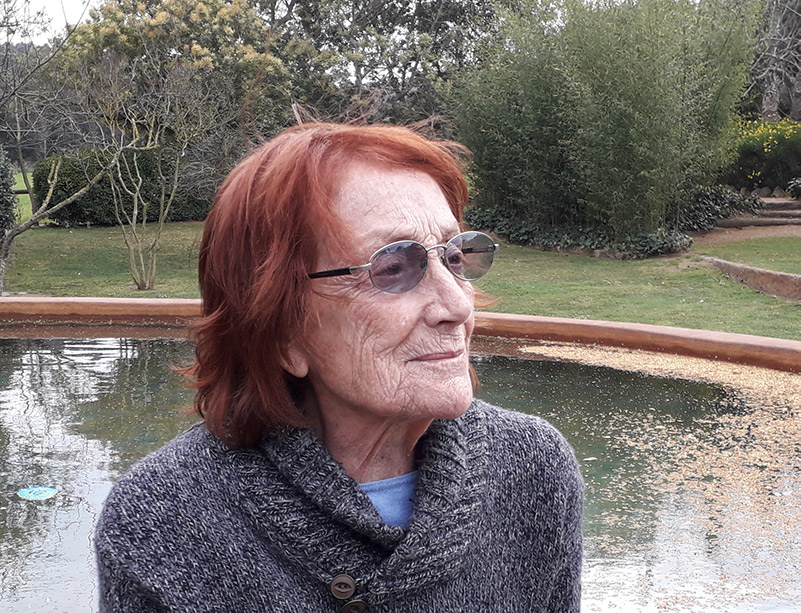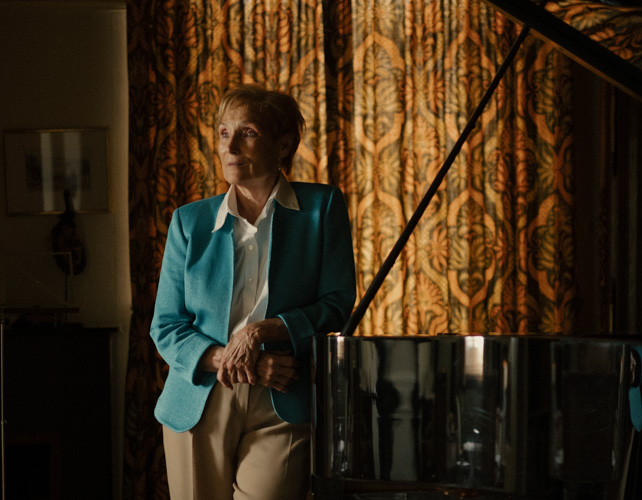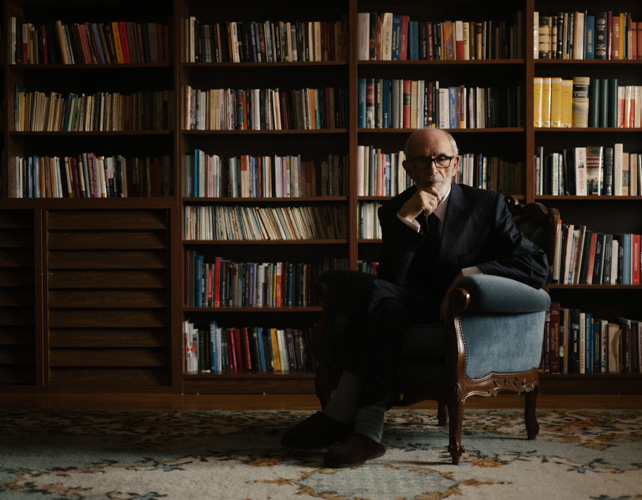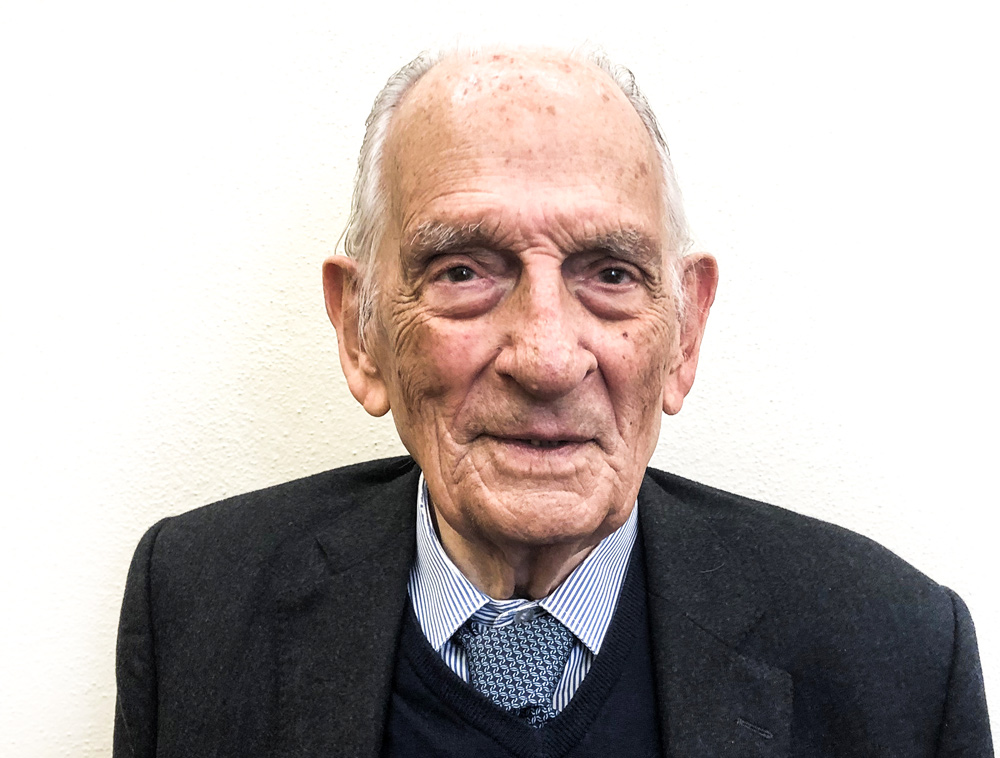Rosa Regás is a Catalan writer, publisher, editor and translator.
Rosa Regàs was born in Barcelona in 1933 as the daughter of a lawyer and a classical scholar. As a result of the bombings during the Spanish Civil War, at the age of two Rosa and her younger brother were sent to live with their grandmother in France. Fighting on the side of the Republic, the Regàs family, like other families, emerged as defeated from the Civil War and left the country ruled by Franco. This attitude will accompany Rosa throughout her life: a distrust of pronounced Francoism and the non-existence of a homeland. Overwhelmed by her childlike energy, Regas is sent to a school of Célestin Freinet, a school influenced by the naturalistic worldview, whose liberalism and freedom significantly influenced Rosa’s thinking.
With the end of the Civil War, the Regàs family was reunited in Spain through the influence of her grandfather, who had served in an authoritarian position under Franco. From now on, Rosa attended a convent run by nuns. Here she had her first significant exposure to literature. After graduating from high school, she married young and had two sons.
Despite her later successful career in the publishing industry, her original desire was to compete in the Olympics for rhythmic gymnastics through professional training. She initially kept this plan a secret and was forced to abandon it after her admission to the Olympics became public.
She then began studying philosophy at the University of Barcelona and made acquaintances with Spanish poets, artists and personalities, including José Agustìn Goytisolo, Miguel Barceló, Salvador Clotas and Carlos Barral. The latter acquaintance was formative for her professional career, as she began her literary career at Carlos Barral’s publishing house Seix Barral, where she worked from 1964 to 1970. In addition to her professional success, she raised three other children.
She later founded her own publishing house, La Gaya Ciencia, which helped published rather unknown authors, including Manuel Vázque Montalbán and Javier Marías, as well as series of books by writers who have been politically persecuted and active.
In 1983, she sold her publishing house to work as a translator and editor throughout the world for the United Nations. Only in 1991 – in her late 50s – she published her first novel, Memoria de Almator, which tells of the struggle of the agricultural trade.
Her activity as a writer and interpreter allowed her to travel constantly all over the world. Regàs describes her trip to Syria, about which she wrote a travelogue, as particularly formative.
Her work as a writer was awarded many important prizes over the years, including the Premio Nadal for the novel Azul, in 1999 the Premio Ciutat de Barcelona for Luna Lunera, and in 2001 the Premio Planeta for the novel La Canción de Dorotea. In 2004 she was appointed director of the National Library in Spain.
The emphasis of the conversation between Rosa Regás and Jose Luis Espinosa lies in the meaning and value of freedom and how it manifests itself: What is personal freedom, political freedom and the freedom of a woman? Regàs talks about important key figures and things in her life that enabled her to free herself from traumatic experiences and that sharpened her understanding of feminism; always pointing out the fact that freedom can be manipulated and that people in general, but especially women, need to sharpen their understanding and gain awareness, as well in politics as in life.
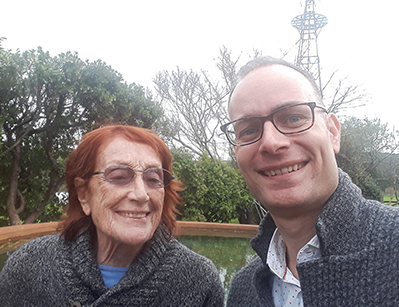
This interview was conducted in Barcelona by Jose Luis Espinosa, a young philologist and teacher with a doctorate in Modern Languages.
Interview Highlights
On the concept of nation and nationality
I don’t know what people mean by nation. When they talk about nation, I don’t know what they mean, I can’t understand it. […] What difference is there, if Catalonia has its own laws and defends its own laws, whether it belongs to Spain, or to the Iberian Peninsula or to Europe? Whether it is independent and needs its own army, its own trains…I don’t understand it.
I remember that even in school as a young girl, I got into some arguments when the nun told me, “What is our homeland? Our homeland is Spain”. I answered back, “Why? Why Spain? […] Which Spain? The Spain of the Catholic Monarchs? The one before the Catholic Monarchs? […] Why should I feel like a citizen of Spain? Is La Coruña my homeland, a place where I have never stepped foot?” How can that be?” And she replied, „The homeland is carried within, something you’re born into.“ Well, not me, I didn’t have it.
On Francoism’s impact on her life
When I got to school, all my friends, girls at the age of six, seven, eight, raved about Francoism as if it was the best thing in the world, but not me. I was on the losing side of the war; I had lost the war. I was conscious about it back then and am still today. To this day I cannot read anything about the exiles without crying. The other day I had to write the prologue for a book […] about a series of documents that show that Léon Blum, the bastard, made a pact with Franco in July ’36. I can’t even express the immense pain that it caused me. When I was little, the same thing used to happen to me. I knew that I was on the losing side of the war, I knew that Spain had lost the war and had become this nonsense. And this nonsense, as I said at the beginning, kept revealing itself to me.
On going abroad and internationality
Back then in 1959 it was very unusual for Spaniards to take trips outside the country. It was difficult, we had very little connection. I was able to boast that I had lived in France. I bragged about it, although I didn’t actually remember anything, but nonetheless I bragged because I realized I had been abroad. Then I went to work at the Carlos Barral publishing house, which was another impressive leap. There we didn’t just pay attention to what we published, but also what was published in the world, so, we had a very different perspective.
… on the challenges Europe is facing
Concerning your question about Europe, I believe that to coalesce around one idea of culture for all these peoples who all see it so differently, it will have to be done with another approach, and I don’t know what that could be. I should not say a culture for everyone, because that is not what it is. It is the acceptance of diversity, and even more, the acceptance and interest in diversity. Until we achieve this in Europe it will not be possible, because we are too different from each other.
What Europe lacks is debate; it lacks debate about culture, debate about unity, debate about total unity, debate about whether we want to stay as we are now, debate on the economy, debate on political and social commitment, debate, debate, debate. Maybe within twenty years we will be ready for a union. Those debates would be fantastic.
Initially there was this very powerful experience, but I believe that the European Union has been distancing itself from critical issues in the lives of its citizens and it has since stayed away. In economic issues, for example, that matter to the upper classes. There, yes, it gets involved. But in economic issues that matter to the poor classes, it doesn’t. Currently, there is no policy to fix the world we have, or to fix the world that is upon us, there simply isn’t. Occasionally the EU will make a statement and then say, “We’ve done our part.” No, I believe that for Europe to be Europe, a united Europe, what the EU has to do is to truly lead all its member countries, and to straighten things out.
On freedom
[Our freedom is] manipulated by television, manipulated by advertising, manipulated by everyone, manipulated by politicians. […] And that’s not all: Catholics also talk to you about freedom because God has given us freedom. Damn, it’s so untrue! They don’t want freedom! […] That’s why I say that, in both feminism and in politics, what you have to do is start from scratch. Try to get rid of everything they have fed you without you realizing it before because it is in the very air we breathe. But, as I’ve moved forward, I have realized that we didn’t start from scratch; we started at minus thirty, or forty or fifty. The case of women is very clear: a woman who wants to be free doesn’t start from scratch, she starts from minus twenty, because first she has to get rid of everything that should define success for a woman, like she has been taught all her life.
[The most important thing?] Lucidity. More than intelligence, lucidity. If you are lucid, you have the courage to be lucid and, if you do not understand it, to look for it. Nobody will be able to deceive you, nobody will be able to dominate you, nobody will be able to do you any harm. You will safeguard your person and your freedom. But if you are not lucid, you will give your vote to the first handsome guy who appears on television just because he asked for it. […] I try, but I’ll never reach full lucidity. But really lucidity is like freedom: it is simply a series of paths, they are not destinations; you can never reach total freedom. Never. You can be on the path to freedom, on the path to lucidity, on the path to helping others. on the path! Helping others, when will you be finished helping others? Never!
On feminism and how she lives it
Let me tell you, this following thought helped me to form a different sense of feminism, you know? Many would say, “Why don’t you leave him? Why don’t you ask for money?”, and I responded, “Why should I be asking him for money?” When I finally separated from him, I told him, “OK, but I’m not leaving the family home,” I really stayed there, separated, but both of us living in the same house. We were a happy, very happy family.
One day I was invited to a feminist association and I was very interested in going, but once there I was horrified. At the time I thought […] that what they had was a brutal nostalgia for the ironing board. They were separated women, who had found themselves alone, but […] it was so hard to be alone at that time. So, when they asked me, “And you, Rosa, what do you think?“, I was foolish enough to say: “Me? I know only one solution.” – “Which is….?” – “The solution is for the most beautiful of us to become a minister’s lover and make him change the laws from bed.” – „Don’t talk nonsense, that would be selling out.“ And I said: “It would be selling out, but we would have laws in our favour.” […] What I find more and more satisfying as the years go by […] is having done whatever I proposed for myself, whatever I decided, whatever I wanted to do. Sometimes it was really hard, other times not so much, sometimes with great conviction, other times without so much: I wanted to have children and I had them; I wanted to get married and I got married; I wanted to go to university and off I went.
What I believe is that the more women there are, who have the courage to call out injustice, to protest, the better. I have always been a big believer in protest, and I’m always ready to say it again. Someone asked one of my grandchildren, „How do you see your grandmother?“, and he answered, “My grandmother has taught me the value of protest and commitment to life.“ It became the title of a book that I published. But he said it when he was twelve years old, and it’s not a question of me teaching him, per ser, it was simply seeing the kind of things you do. So, yes, I do believe in protest, and if it sometimes goes overboard or gets twisted, so be it! If we are wrong, next time we’ll do better, but protest is always something worth doing compared to the brutality of things that women have had to endure throughout their history.
